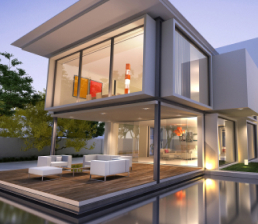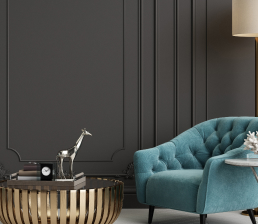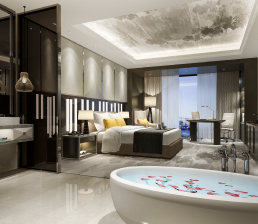Global Capability Centers | Managed Offices | Bengaluru
The Role of Workspace Design in Driving GCC Productivity
The Role of Workspace Design in Driving GCC Productivity
Workspace design plays a critical role in shaping the success of a Global Capability Center (GCC). An innovative and thoughtfully designed office layout doesn’t just enhance aesthetics—it boosts collaboration, fosters innovation, and increases employee satisfaction. Here’s how workspace design can elevate productivity in your GCC:
1. Encouraging Collaboration Through Open Layouts
Modern office designs prioritize open layouts that break down barriers, both physical and hierarchical. These spaces encourage communication and teamwork among employees, creating an environment where ideas can flow freely and collaboration thrives. Dedicated collaboration zones further support teamwork, brainstorming, and cross-functional interactions.
2. Creating Spaces for Innovation
Innovation hubs within the GCC, such as breakout rooms or idea labs, inspire creativity and problem-solving. These spaces, equipped with the right tools and technology, allow employees to experiment, prototype, and bring new ideas to life, driving the center’s innovation goals.
3. Balancing Focus and Flexibility
While open layouts are great for collaboration, employees also need quiet zones for focused work. Incorporating soundproof pods or designated quiet areas ensures employees have spaces to concentrate without distractions. Flexible seating arrangements, hot desks, and multipurpose spaces adapt to various work styles and tasks, further boosting efficiency.
4. Integrating Technology Seamlessly
A well-designed workspace seamlessly integrates technology to support operations. Features such as high-speed internet, smart meeting rooms, and collaborative digital tools enhance productivity and make communication effortless across teams and geographies.
5. Prioritizing Employee Well-Being
Biophilic designs that incorporate natural elements like plants, natural light, and eco-friendly materials create a calming atmosphere that reduces stress and improves well-being. Ergonomic furniture, standing desks, and wellness rooms contribute to employees’ physical health, ensuring a comfortable and productive work environment.
6. Planning for Future Growth
Workspace design should anticipate future needs. Modular layouts and scalable spaces allow for easy reconfiguration as the GCC grows, ensuring the office can accommodate expanding teams and evolving business requirements without major disruptions.
7. Reflecting the Organization’s Culture and Vision
A well-designed workspace reflects the parent company’s culture and values. Through branding elements, color schemes, and thoughtful design, the GCC can create a sense of belonging among employees and reinforce its alignment with the organization’s vision.
Conclusion
Workspace design is more than just aesthetics—it’s a strategic investment that drives productivity, innovation, and employee satisfaction in a GCC. By fostering collaboration, integrating technology, and prioritizing employee well-being, a thoughtfully designed workspace can empower your GCC to achieve its full potential.






